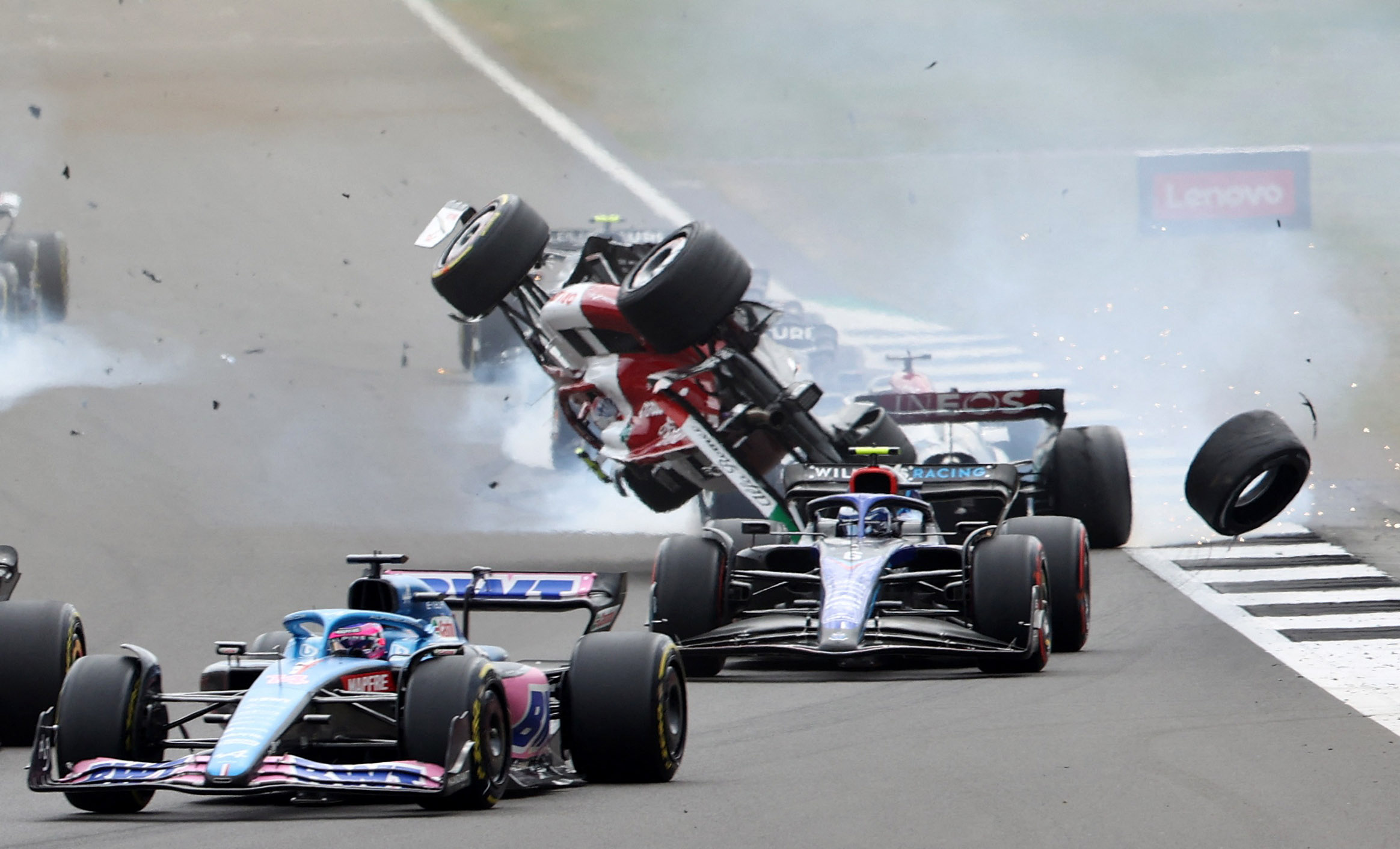
Formula One F1 – British Grand Prix – Silverstone Circuit, Silverstone, Britain – July 3, 2022 Alfa Romeo’s Guanyu Zhou crashes out at the start of the race REUTERS/Molly Darlington
LONDON— Formula One’s governing body said on Friday it will introduce tougher tests on the roll hoops of cars next season as a result of Chinese driver Guanyu Zhou’s big British Grand Prix crash.
Zhou’s Alfa Romeo flipped and skidded upside down along the track at Silverstone, with the roll hoop ripped off, before flying across a tire wall and becoming wedged between the barriers and catch fence.
The rookie escaped unscathed, his head protected from serious injury by the titanium Halo device that rings the cockpit.
The FIA said its Technical Advisory Committee (TAC) met on Thursday representing the teams, governing body and commercial rights holders.
“The teams confirmed their availability to introduce more stringent measures on the roll hoops for 2023, and the FIA undertook to complete the relevant analyzes and to communicate to the teams new requirements for the safety of the roll hoop,” it said.
The TAC also discussed the vertical oscillation of cars, commonly known as ‘porpoising’ — bouncing at speed like the movement of a porpoise through water.
The aerodynamic phenomenon has been a consequence of this year’s major rules overhaul.
Champions Mercedes have been particularly affected, although they appear to have resolved some of the worst effects, and the FIA warned there was a risk of a more serious problem next season.
“While the issue has been seemingly reduced in the last few races, they took place at circuits where the effect is expected to be lower than normal,” the governing body explained.
“Races where this effect is expected again to be higher will take place in the coming months.
“While the teams are understanding more and more how to control the issue, the tendency for 2023, with the cars developing more downforce, will most likely be a worsening of the effect.”
It said measures to be put in place from next month’s Belgian Grand Prix were not necessarily a long-term fix and the FIA would introduce further changes for 2023.
They included raising the floor edges of cars by 25mm, more stringent lateral floor deflection tests and a more accurate sensor “to help quantify the aerodynamic oscillation.”

